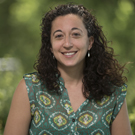
Long Healing Journey After Jackson's "Miracle" Recovery

Jackson has always loved sports. He plays varsity football and grew up playing basketball, ice hockey, baseball and lacrosse.
But when he was younger, a terrifying chain of events sidelined him from every aspect of his life. After his ninth birthday, Jackson was playing at a park with family and had a seizure. He slurred his words and stared off into space.
“Everything happened so fast and it felt like we were trapped in a nightmare,” recalls Jackson’s dad, Jason. “It seemed like his brain was stuck.” Jason and Jennifer, Jackson’s mom, brought him to Children’s National Hospital.
Our experts diagnosed him with a rare autoimmune disease called anti-NMDA receptor encephalitis. It causes the body to attack the brain. Jackson stayed in the hospital for more than five months. He lost his ability to talk, walk and eat on his own. He experienced more seizures and painful uncontrolled movements.
Neurologists Elizabeth Wells, MD, and Ilana Kahn, MD, led his care. Since the disease is so rare, they had to determine which treatments and medications were effective for Jackson. One treatment involved replacing the plasma in his blood to remove harmful antibodies and help heal his immune system.
“Drs. Wells and Khan reassured us that Jackson would be OK, it would just take time,” says Jennifer. “Their compassion and support got us through our darkest days.”
After extensive speech and physical therapy, Jackson relearned his fine motor skills. Slowly, after a year-and-a-half, he recovered. But after his illness, Jackson was reserved and felt insecure and sad. “Part of his childhood was taken from him,” says Jason.
In the years after, Jackson saw therapists but had trouble connecting with them. When Emily began her Neurology role, Drs. Wells and Kahn referred Jackson’s family to her. “Jackson opened up to Emily immediately and she provided helpful coping strategies,” says Jason.
Jackson had no recollection of his long illness, so Emily helped Jason and Jennifer navigate how to discuss it and what to share with him. “Emily was the missing piece we all needed to heal,” says Jennifer.
While he continues to process his past, Jackson is also focused on the future. He wants to study business in college and become an entrepreneur someday. “The expertise at Children’s National made his recovery possible,” adds Jennifer. “They kept our family strong and gave him hope so he can follow his dreams.”
But when he was younger, a terrifying chain of events sidelined him from every aspect of his life. After his ninth birthday, Jackson was playing at a park with family and had a seizure. He slurred his words and stared off into space.
“Everything happened so fast and it felt like we were trapped in a nightmare,” recalls Jackson’s dad, Jason. “It seemed like his brain was stuck.” Jason and Jennifer, Jackson’s mom, brought him to Children’s National Hospital.
Our experts diagnosed him with a rare autoimmune disease called anti-NMDA receptor encephalitis. It causes the body to attack the brain. Jackson stayed in the hospital for more than five months. He lost his ability to talk, walk and eat on his own. He experienced more seizures and painful uncontrolled movements.
Neurologists Elizabeth Wells, MD, and Ilana Kahn, MD, led his care. Since the disease is so rare, they had to determine which treatments and medications were effective for Jackson. One treatment involved replacing the plasma in his blood to remove harmful antibodies and help heal his immune system.
“Drs. Wells and Khan reassured us that Jackson would be OK, it would just take time,” says Jennifer. “Their compassion and support got us through our darkest days.”
After extensive speech and physical therapy, Jackson relearned his fine motor skills. Slowly, after a year-and-a-half, he recovered. But after his illness, Jackson was reserved and felt insecure and sad. “Part of his childhood was taken from him,” says Jason.
In the years after, Jackson saw therapists but had trouble connecting with them. When Emily began her Neurology role, Drs. Wells and Kahn referred Jackson’s family to her. “Jackson opened up to Emily immediately and she provided helpful coping strategies,” says Jason.
Jackson had no recollection of his long illness, so Emily helped Jason and Jennifer navigate how to discuss it and what to share with him. “Emily was the missing piece we all needed to heal,” says Jennifer.
While he continues to process his past, Jackson is also focused on the future. He wants to study business in college and become an entrepreneur someday. “The expertise at Children’s National made his recovery possible,” adds Jennifer. “They kept our family strong and gave him hope so he can follow his dreams.”
Jackson's Care Team Departments
Jackson's Care Team
This is a carousel. Use Next and Previous buttons to navigate, or jump to a slide with the slide dots.


Be the Reason a Child Smiles
Every day at Children’s National Hospital, lives are changed through compassionate care and groundbreaking discoveries. Your charitable donation helps us deliver expert treatment and hope to thousands of children and families.
Meet the patients whose stories inspire us—and see the difference your support makes.





